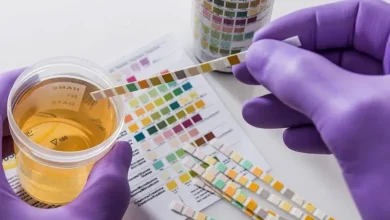Living Through Cancer Treatment: Simple Ways to Understand and Manage Side Effects

Cancer treatment is not easy. This impacts both the body and mind. People generally feel tired, stressed, and confused. The treatment that fights cancer can also affect normal cells. This is why side effects happen.
Common treatments include chemotherapy, radiation therapy, and immunotherapy. Each of these works differently. Chemotherapy attacks fast-growing cells. These are not only cancer cells but also hair, skin, and digestive system cells. That is why hair loss, nausea, and fatigue happen. Radiation can make skin sensitive and cause tiredness. Immunotherapy can affect the immune system and cause other reactions.
Side effects can be frustrating. About half of chemotherapy patients feel extreme tiredness. Many also feel nausea or vomiting. Knowing this can help patients prepare. Understanding side effects is the first step to manage them better.
Overview of Cancer Treatment Side Effects
Cancer treatments are to destroy cancer cells, but they can also harm healthy cells. Side effects happen for this reason. The most common treatments are immunotherapy, radiation therapy and chemotherapy, each of which has different side effects. For example, chemotherapy targets cells that quickly spread, such as skin, digestive system cells and hair follicles. Hair loss, nausea and exhaustion are common consequences. Immunotherapy can produce immune system reactions, while radiation therapy can cause exhaustion and skin changes. According to studies, about 49% of chemotherapy patients are reported to feel tired. In 40–80% of cases, nausea and vomiting occur.
Common side effects include:
- Tiredness: Feeling tired without even working much, might lower the patient’s confidence. Walking or normal exercises might help to boost energy levels and allow patients movements
- Nausea: Chemotherapy medications can cause nausea and vomiting by causing indigestion. Antiemetic drugs and frequent meals are generally advised to make your digestion better.
- Discomfort: Cancer can cause a variety of pain, which can be bone and nerve pain. Therapies, exercise and medication can manage any sort of pain or discomfort
- Appetite Changes: Medication may change digestion or lower your desire to eat. Patients can try to eat nutritious meals which would help to conserve energy.
- Alopecia: This is a common impact of chemotherapy that can drain the patient emotionally. After treatment, hair typically comes back, till then the sufferer makes use of wigs, scarves, and caps which would provide comfort.
What a Medical Oncologist Does
An oncologist is someone who treats cancer. Their job starts with diagnosis and staging. They check what type of cancer it is. They also find out how far it has spread. Tests consist of biopsies, blood tests, scans, and at times genetic diagnoses. This helps them plan treatment carefully.
After diagnosis, the oncologist creates a treatment plan. This plan is different for each patient. This is on the cancer type, phase, and the sufferer’s overall well-being. Treatments may involve chemotherapy, targeted therapy, immunotherapy, or hormone therapy.
Chemotherapy is often used. The oncologist decides the drugs, how much to give, and how often. They also watch for side effects. If something is too strong, they adjust the treatment. Targeted therapy is for cancer cells only. Immunotherapy helps the immune system fight cancer instinctively.
Managing side effects is very important. Oncologists give medicines to reduce nausea, pain, or fatigue. They also suggest ways to make life simpler during the process. Patients are often backed by a team of doctors and nurses. Each specialist helps with different parts of care.
Education and support are also key. Oncologists explain everything clearly. They answer questions. They help patients understand what is happening in their body. They also guide families. Counseling or support groups may be suggested. After treatment, follow-ups help keep track of health and prevent problems.
For patients with advanced cancer, palliative care is offered. This focuses on comfort and reducing pain. Emotional support is also part of this care. The aim is to improve quality of life even if the cancer cannot be cured.
See also: Healthy Snack Ideas That Improve Concentration for Gamers
Understanding Side Effects is Key
Side effects are part of the process. Simple actions such as drinking water, eating meals at regular intervals, and resting helps a lot. Exercises, therapies and emotional support improve well-being. Complementary therapies add comfort.
Keeping a daily routine helps. Small adjustments to diet, rest, and activity make life simple. Patients usually feel managed when they understand their body and medication.
Support from doctors is very important. Oncologists help patients manage side effects safely. They adjust treatment when needed. They answer questions and guide patients. Having clear instructions makes the journey less stressful.
7 Simple Ways to Manage Side Effects
1. Intake Water More and Light Meals
Treatment of cancer makes people feel vomiting or uneasy. Drinking water and broths might make you feel better . Light meals are easier to digest. They give energy and will not make your stomach upset.
2. Rest Often
Fatigue is common. Take breaks and naps when needed. Try to keep a sleep schedule. A quiet, cool room helps. Light activity like walking can also improve energy.
3. Reduce Nausea
Nausea and vomiting can be tough. Medicines help. Eating small meals and ignoring strong smells would make you feel less discomfort. Ginger or similar remedies can also help.
4. Take Care of Skin and Hair
Radiation and chemotherapy can dry skin and cause hair loss. Use gentle skincare products. Avoid strong sun. Wigs or scarves help if hair falls out. Gentle hair washing is important.
5. Move Your Body Gently
Slight motions help with exhaustion and mood. Always consult your oncologist before starting any type of movement.
6. Express Your Sentiments
Cancer impacts your health mentally as well. Share feelings with family or friends. Counselors or support groups provide comfort. Talking about problems helps reduce stress.
7. Try Relaxation Methods
Yoga, meditation, massage, or therapies can lighten up the patient. These therapies support treatment. Always consult your oncologist at Paras Hospitalsbefore trying anything new.
Conclusion
Treatment of cancer can make patients feel low and stressed . Side effects can make it even more difficult. But understanding them and taking small steps daily can help. Rest, hydration, exercise, proper nutrition and emotional support are very much beneficial. When selecting care, it is important to have an experienced oncologist in Patna. Paras HMRI, Patna provides cancer care with specialist assistance. They guide patients through every step, from diagnosis to treatment and controlling side effects. Patients in Paras hospitals get medical care with emotional guidance. This makes the journey of cancer more manageable and less stressful.




